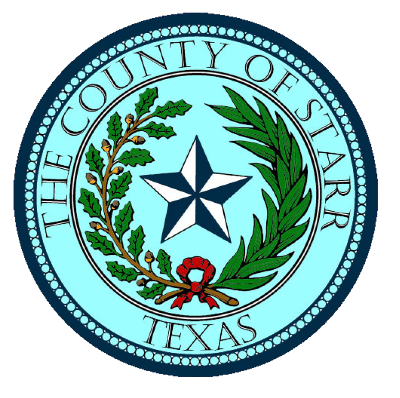Provisions of two Starr County policies were partially struck down Monday after a federal judge determined they were unconstitutional and also violated the Texas Election Code.
U.S. District Judge Randy Crane determined that sections of the county’s electioneering policy and their property use policy violated the First and 14th Amendments for its restrictions on speech and for its alleged lack of equal protections.
Crane ruled that a section of the electioneering policy — which was passed by the county to impose restrictions on the practice on county property — that made it unlawful for electioneering activities to distract drivers or obstruct their vision was “unconstitutionally overbroad and vague.”
Crane also ruled that that section was not a reasonable restriction on electioneering — a violation of the Texas Election Code.
Parts of the county’s building and property use policy were also struck down — specifically, the age restriction to apply for a permit which the judge ruled violated equal protections. He also ruled that other sections of the permitting process violated the First Amendment as it constituted prior restraint on speech and that the criminal penalty for not abiding by the property use policy violated the First and 14th Amendments and is void for vagueness.
The legal battle over the policies began in January 2018 when the Starr County Commissioners Court adopted an electioneering policy which banned the practice on all county-owned property.
On Feb. 12, 2018, the county then also adopted their property use policy which allowed the use of “common areas” — that are not parking areas — with a permit.
Later that month, the Mexican American Legal Defense and Educational Fund and Texas Civil Rights Project filed a lawsuit and temporary restraining order against the county to prevent them from implementing the electioneering policy. The lawsuit was later amended to include objections to the property use policy as well.
The lawsuit was filed on behalf of two Starr County residents — Hilda Gonzalez Garza, a local attorney and Democratic Party precinct chair, and Rosbell Barrera, the county’s Republican Party chair.
Mario Mascorro Jr., a then-19-year-old candidate for county commissioner, also joined the lawsuit as the age restriction on applying for a permit — which requires one to be at least 21 years old — prevented him from applying for one.
As the case moved forward in in federal court, the county continued to revise the policies so as to address the issues raised in the lawsuit.
But the revisions did not appear to satisfy the court given the ruling.
“The judge’s ruling strikes down key portions of the County’s unconstitutional regulations and also substantially limits other provisions in order to ensure that the County cannot infringe on residents’ First Amendment rights,” Nina Perales, MALDEF vice president of litigation and an attorney in the case, stated in a news release. “The bottom line is that voters have more freedom to express their views outside polling places and on other county-owned property without facing burdensome restrictions on their speech.”
229th District Attorney Omar Escobar, who helped draft the policies, said that the lawsuit started the county’s ability to prohibit electioneering in parking lots, which previously led to campaign workers setting up tents and barbecue pits in the parking lots.
“From the very beginning, this lawsuit was about parking lots, and tents and barbecue pits,” Escobar said, noting that that portion of their policies remained intact.
“The parking lots will remain for parking,” Escobar said. “And that’s what this fight was all about, that’s where it began.”





